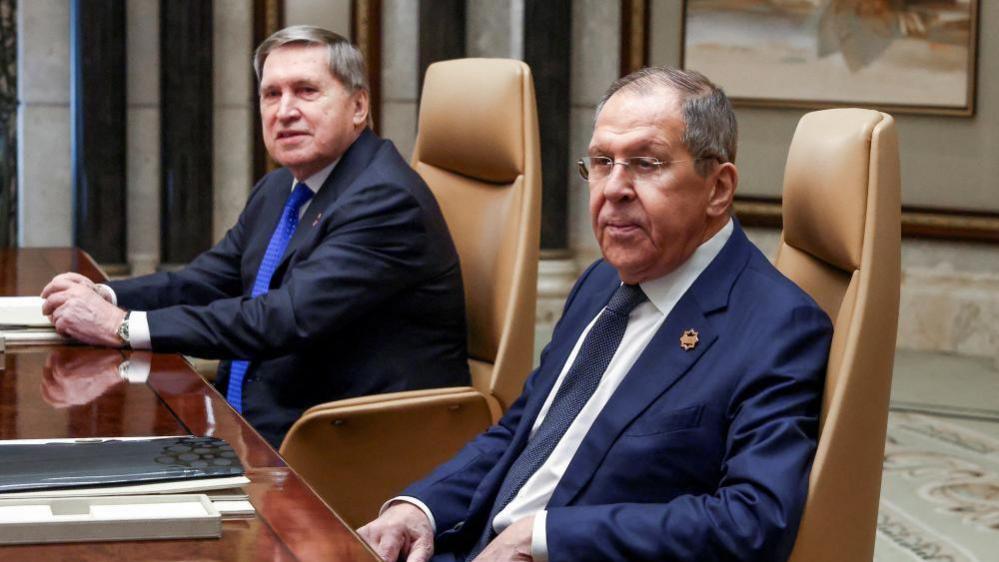Moscow back at the table - and appearing to call the shots

- Published
The sight of senior Russian and American officials back around a giant negotiating table is extraordinary.
For many, most of all Ukrainians, it will have been very hard to take.
In Saudi Arabia, Moscow achieved something major: after three years of all-out war on its neighbour and isolation by the West, it was back at the "top table" of global diplomacy.
Not only that, Russia looked for all the world like it was the one calling the shots.
Even as air raid sirens continue to sound across Ukraine, that's exactly the image Moscow wants to project.
This was not a defeated Russia, forced to the negotiating table. It was more like the US inviting the aggressor to set out its terms.
True, US officials went into the process saying they wanted to feel out Russia, check whether it's serious about peace.
But Donald Trump had already drawn his conclusions. Last week, after he spoke to Vladimir Putin by phone, he announced that the Russian leader "wants to see people stop dying".
Trump could have responded by telling him to withdraw all his troops.
Instead, he clearly wants to cut a deal with Moscow to end the war, as he promised voters, and move on.
After more than four hours of talks in Riyadh, US Secretary of State Marco Rubio emerged to the press and announced the first steps towards negotiations had been agreed, with teams to be formed on both sides.
He'd concluded that Russia was ready to engage in a "serious process" to end the war.
But why was he so sure?
Across the table was Foreign Minister Sergei Lavrov, still under sanctions for what the US Treasury called Russia's "brutal war of choice".
When Lavrov met the Russian media, he told them the US had proposed a moratorium on attacking energy infrastructure.
"We explained that we have never endangered the civilian energy supply and only target what directly serves Ukraine's military," was the minister's reply.
That's not true.
I have personally walked through the ruins of civilian power plants that have been directly targeted by Russian missiles.
This is the country that the US is attempting to engage with, although there is ample evidence that it can't be trusted.
Russia has also shown zero sign of conceding any ground: why would it, when the Trump administration has already agreed that Ukraine will never join Nato, as Moscow demands, and won't get its occupied land back?
That's why, for Ukraine's allies, it won't only be the image of US and Russian officials seated at the shiny Saudi table that jarred. It's also how they talked.
"Laying the ground" for future investment sounds like a promise of dropping sanctions: no reckoning for Russia's war of aggression, then, just reward.
These are, of course, the earliest of early days.
But in Moscow, officials and state media sense the start of Russia's return to where it believes it belongs: face to face with the US, as an equal.